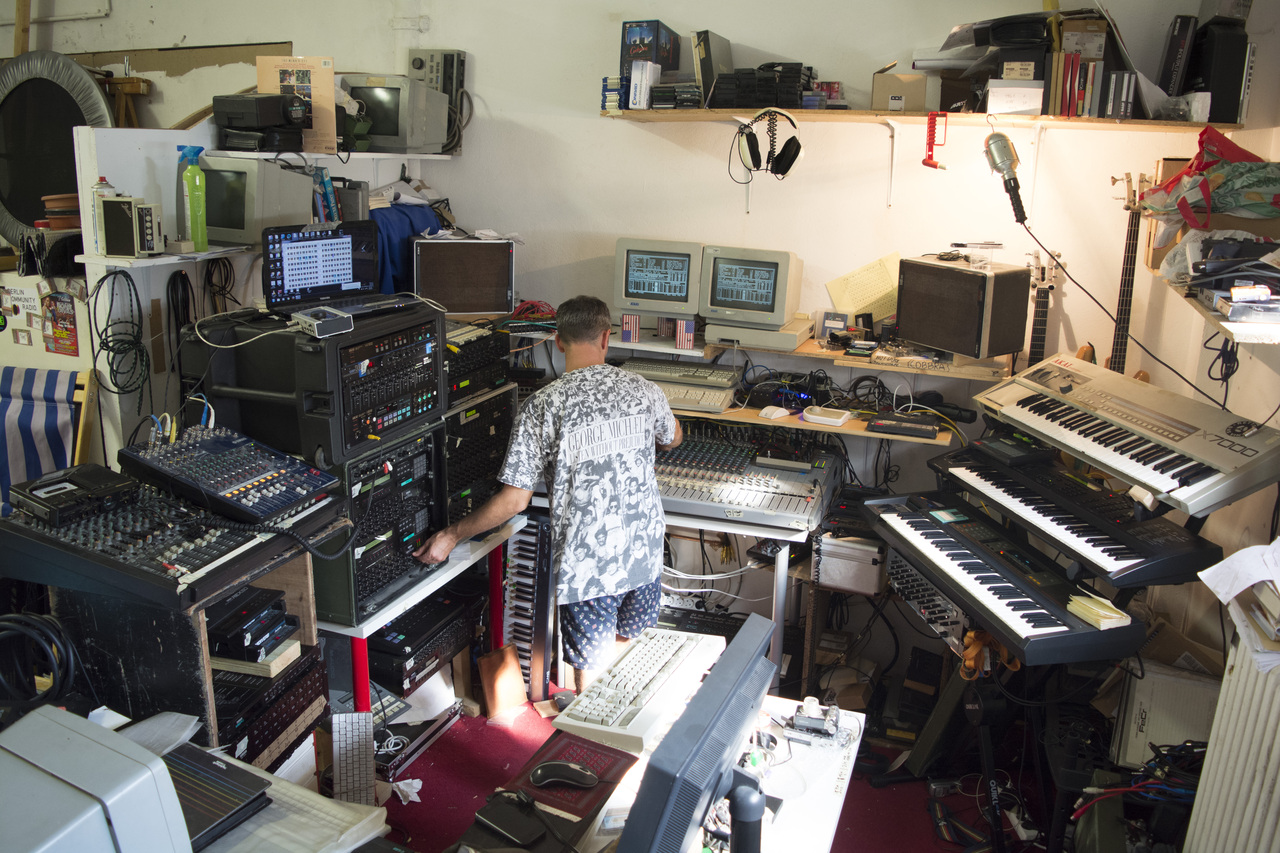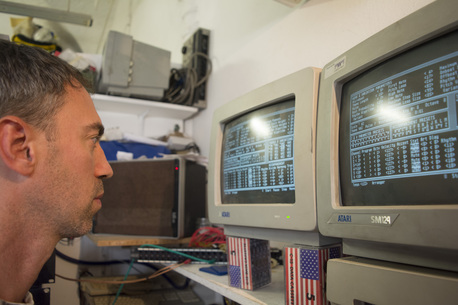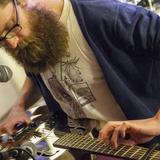Written by:
Wouter Vanhaelemeesch
Share article:
Melody Rhythm Matrices
Nate talks to The Attic about the trial and error, mathematics and alchemy that infuses his singular music.
It's funny to me how such a laborious and deeply conceptual set-up can create a music that seems so playful, vibrant and fun. How much of what comes out of this set-up is intended and how much is sheer serendipity?
The setup was originally much much smaller; just one Atari ST, which I had just been given, and a DX7II, and a Boss DR660 which I had had for a while. Already at that point it at its conception, it was this confusing meandering MIDI beast to me, fun and surprising, and playful. The ST was definitely the catalyst. Once I wrapped my head around what I was doing from playing around with it for a few months and playing a few live sets with it, getting some encouragement from people I respected, I started adding to it, then eventually realizing I could be "All rack" and stop having to bring this giant heavy DX7II with me, when I wasn't even using its keyboard for anything, just standing the thing vertically next to my mixer. As I built the setup further, I wanted to maintain how playful it was, because that kept me coming back to that way of working. It was addictive to me. It also pushed me to advance how playful it could get, adding foot pedals, midi effects, etc. As it became a more complex setup, I started to see this kind of comically complex and gigantic construction I was building as a source of pride, a kind of pride you get when you finish building something out of wood or whatever.
Connecting to that, how does failure come into play? How much trial and error is involved? What matters most to you when composing within this strict set-up?
Failure, if we are referring to the failure that is implied in "error" of trail and error, plays a huge part. I will stand there and "generate" rhythmically unique melodies over and over until I find something that I think has a good groove or can work as a good counterpoint to something else I've already "generated." I can spend an entire week just picking out different "melody rhythm matrices" (I made that up to describe what these are) I've generated on each ST, then figuring out at which key and in which mode they play well together, and then base a live set on all these choices in front of me.
Then when an actual live set happens, I'm given all these choices, and it's sort of like I've made many different entry points into an improvised set, not knowing exactly where it will go from there.
Failure also comes into play when, for whatever reason, I decide to "generate" on the fly during a live set. That's when real risk happens, especially now that I work with two ST's, so the variables and risks related to it "sounding good" go up exponentially.
I think what matters most to me is coming up with different possibilities for the music to go in during an improvisation. If I've come up with the right "environment" for me to jam within, then the actual composing happens in the moment when I perform. That way I come up with ideas by accident, I hear how it sounds and then repeat it or vary it, instead of limiting myself to my own ideas based on what I've found to work before.



